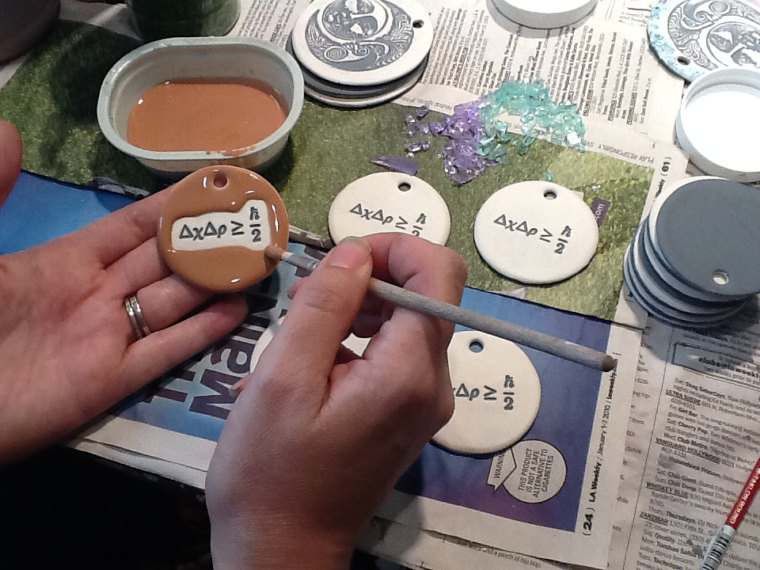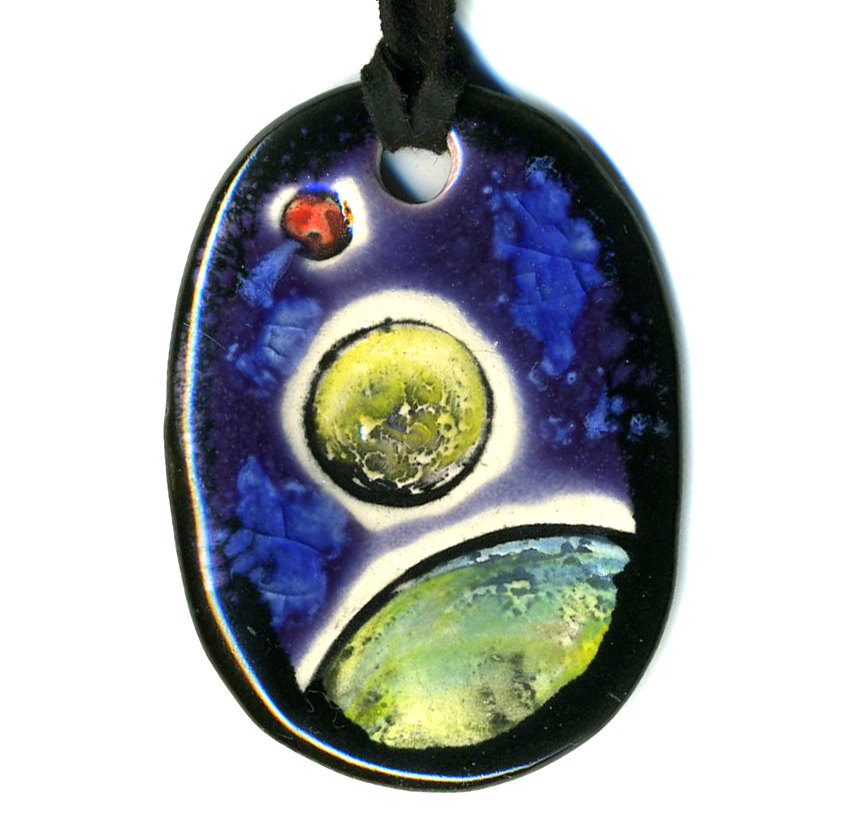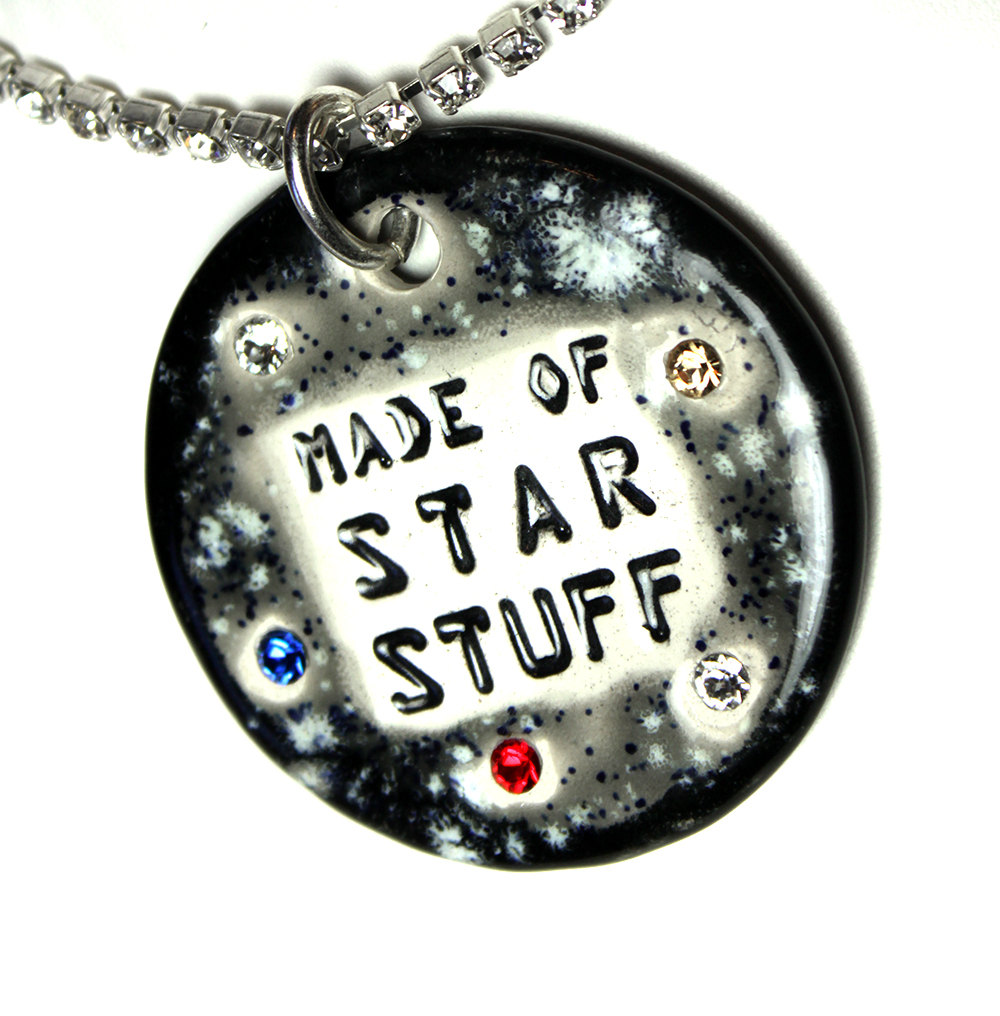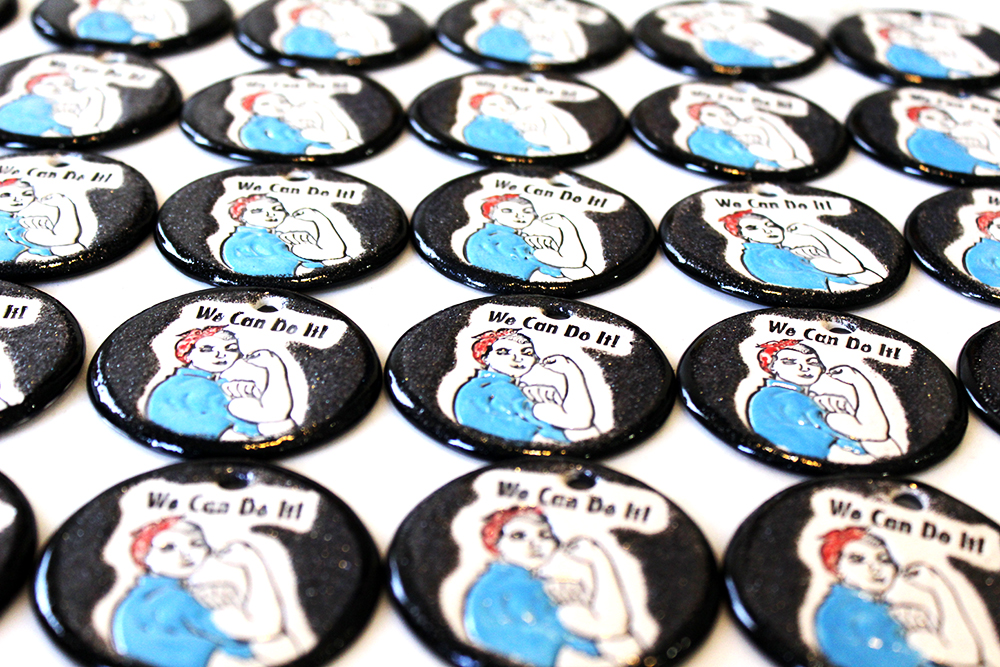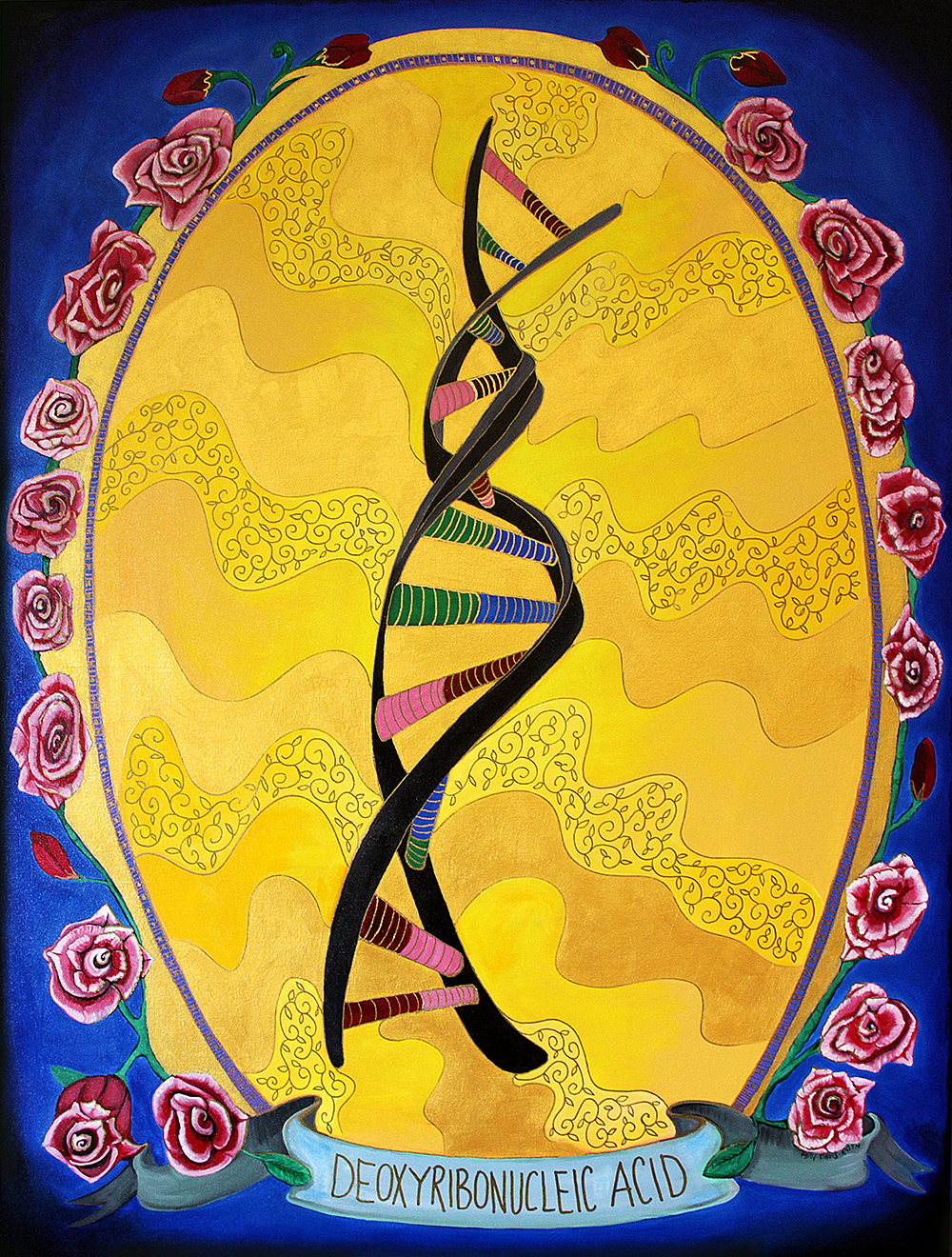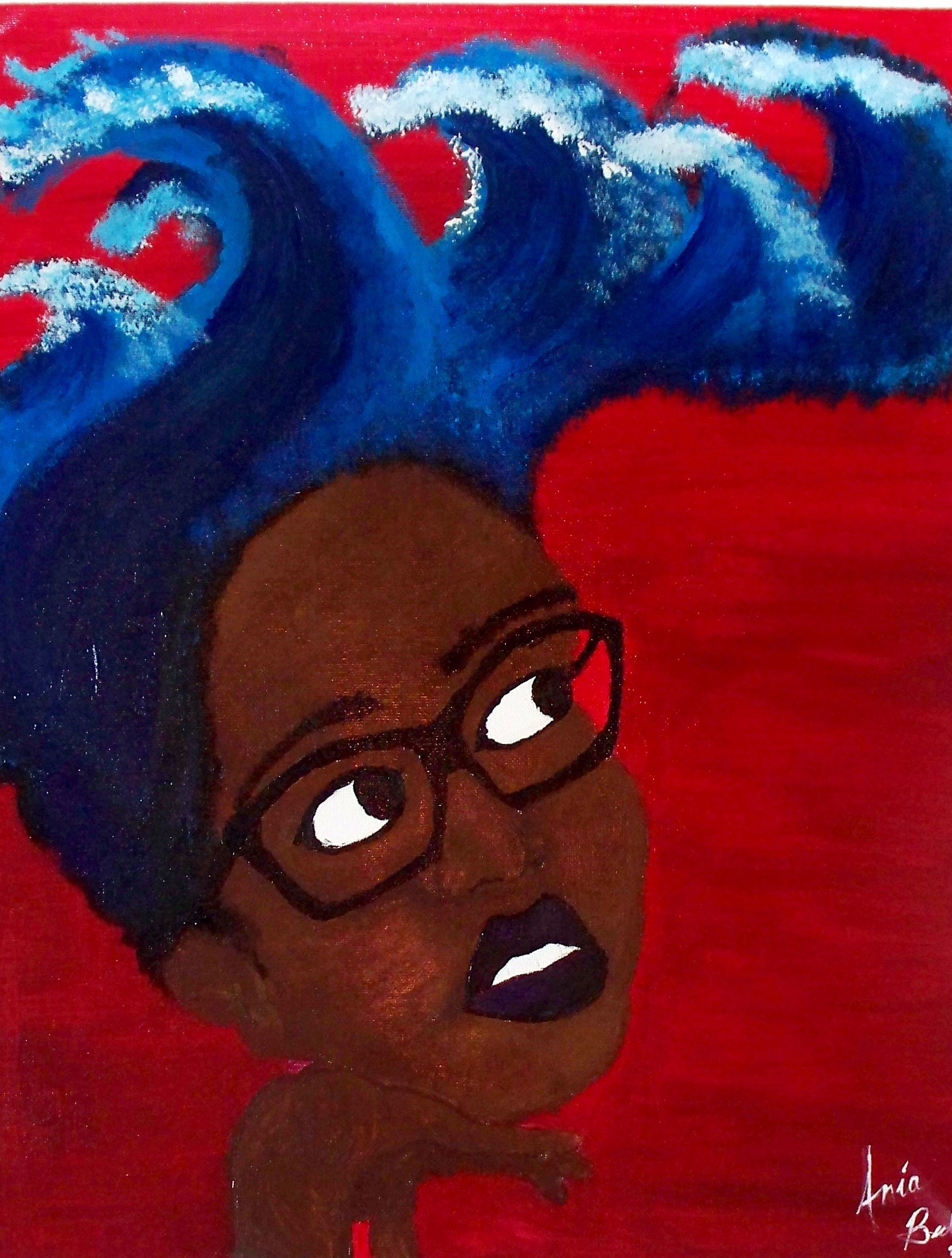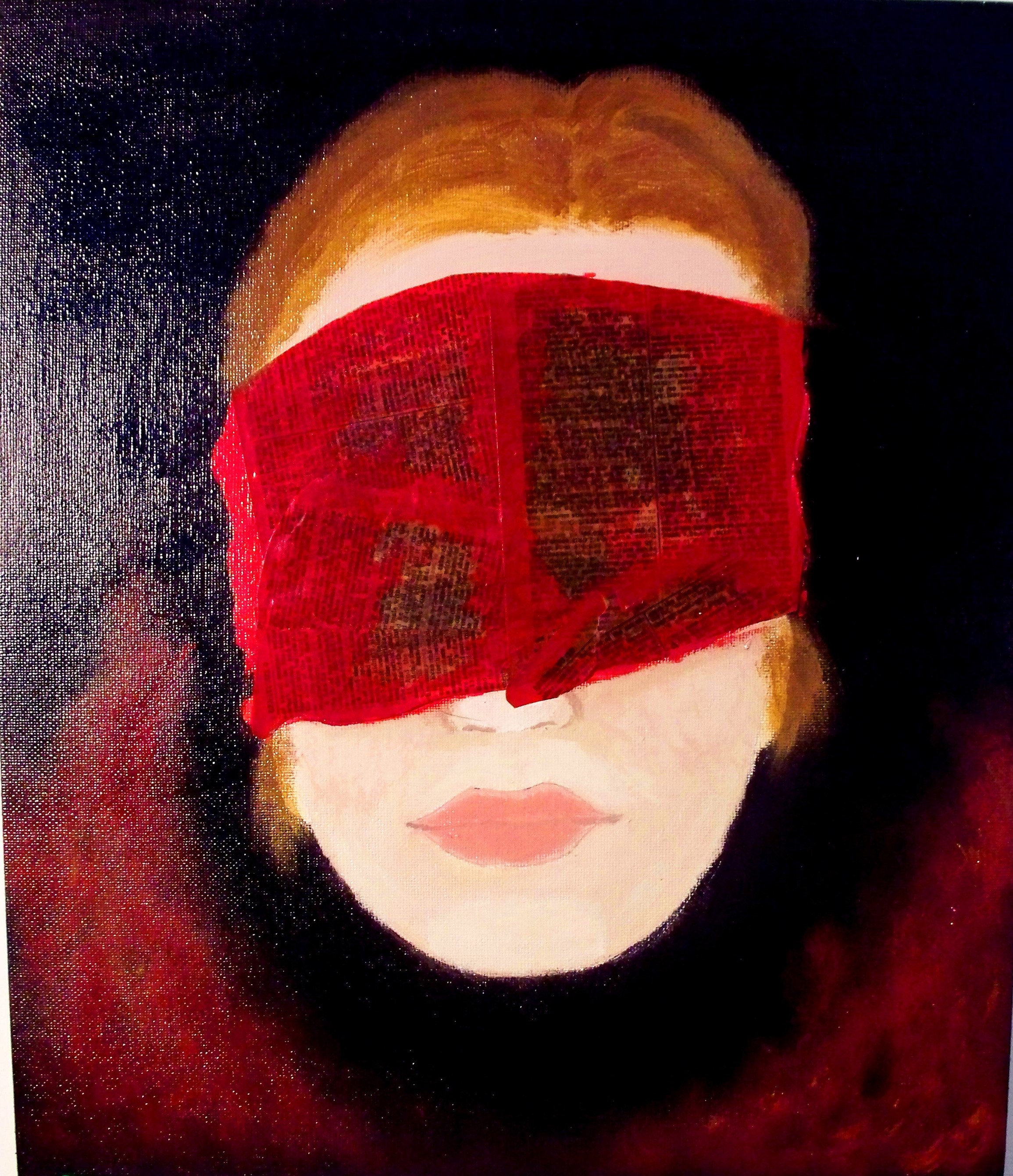As the founder of Skepchick.org, a regular on the Skeptics’ Guide to the Universe, and a frequent speaker at conferences around the world, Rebecca Watson needs no introduction within the skeptic community. A powerful writer with razor-sharp wit, Watson speaks out for science, skepticism, and social justice with equal force; her new Patreon campaign will fund high-quality videos in which Watson will address such topics. Secular Woman, a donor to Watson’s project, tremendously values Watson’s contributions to the secular movement. Watson took time from her busy schedule to sit down with Julia Burke––twice (long story)––to chat about her background and share her wisdom over a few beers. A video of the conversation will soon be available to Watson's subscribers; a lightly edited transcript follows.
JB: So how did you actually become a skeptic?
RW: I was actually just trying to think of a funny joke response, considering that we’ve done all this already once.
JB: Yeah, I got nothing.
RW: Yeah, no. I should have prepared for that. And for the people watching the video, I want to explain that we did all this last night but I screwed up the recording so we’re going to take another shot at it. But luckily, we were drinking heavily and so I don’t remember my answers.
JB: Yeah, it’s going to be a whole new adventure.
RW: So. How I became a skeptic was through magic, which is a path that a surprisingly large number of skeptics take. By the time I reached college I had pretty much lost interest in science and I was focused on my writing, but also I was working my way through college as a magician. I had been a juggler and a magician since I was about 14 or 15 and I had started working at magic shop, and I just started reading every book I could get my hands on; I was already a big fan of Penn and Teller, but through them I learned about James Randi and I read everything Randi does, and found out that he has a Million Dollar Challenge, where he offers to give a million dollars to anybody who can prove they have paranormal abilities. I also learned that Randi had an online forum, and I had never been on a forum before but I went and checked it out, and that’s kind of how I got sucked in to the skeptical community and started actually calling myself a skeptic.
JB: And you identified as an atheist before that, and pretty early on, correct?
RW: Yeah, the atheism came first, because I didn’t really know what a skeptic was until I found Randi’s forum. I grew up Baptist (not the horrible kind––like, we could dance and drink) but, there’s always this idea that you weren’t supposed to think about big questions like “What if God doesn’t exist”; that’s just not something that should even enter your mind. But I had a lot of questions. I had a big interest in mythology, Greek and Roman mythology, and it always bugged me––as a kid, I kept asking my parents, “Is Zeus real?” And they’d be like, “No, dummy.” <laughs> And I’d be like, “But, did people back then believe Zeus was real? Like, did people a long time ago think he was real?” And they’d be like, “Well… heretics…”
And so I remember pushing these thoughts to the back of my head about all these other gods that have existed or do exist supposedly in the world. But the second I left home, when I was 17, I went to college and my very first class was an introduction to philosophy class, and it’s not like I read anything particular in class that opened my eyes; it was merely the realization that these questions are okay to think about. And so almost immediately upon leaving home I was like “Oh, yeah, there’s no such thing as a god.” And yeah, then later on I found out about skepticism as a philosophy and skeptics as a community.
JB: Was there anything sort of near and dear that you had to get rid of when you started becoming a skeptic and thinking skeptically? I know skeptics who used to be really into martial arts, for example, and with that came a lot of woo or alt med; was there anything like that for you?
RW: Somebody was just asking me about this the other day in another interview, about remembering to use your skepticism even when it’s something you personally want to believe in. I pointed out that from the beginning that’s all I’ve been interested in, is questioning things I want to believe in––religion being one. I desperately wanted to believe that my dear grandmother was waiting for me to heaven. What more could I possibly want than a loving god? But it was also kind of exciting to realize that that was all BS.
JB: You mentioned yesterday that the grieving process, when you believe that there’s this afterlife, can never really be completed. I thought that was a really interesting point.
RW: And that came up in another context of something I wanted to be true; when I was in college I was working as a magician, and––this is a very sad story, so I apologize––a boy I knew, who I used to babysit, died, tragically, too young (I think he was in high school), hit by a drunk driver. I remember around that time I stumbled upon a TV show with a psychic who could talk to the dead, John Edward. I had never heard of him before and I watched it and found it really compelling.
I remember that I went to my boyfriend at the time, who was also a magician, and I said to him, “You know, I don’t think I’m an atheist anymore. I saw this guy and he was talking to people’s dead loved ones, and it was really compelling and I think that maybe there’s something out there.” And my boyfriend was just like “What is wrong with you? He’s doing the same tricks you do on a day-to-day basis. You use cold reading tricks in your act.” It was just because I had really just wanted it to be true that it seemed so possible, even though I knew in my heart that it was BS. So, yeah, I think it’s important as skeptics to remember that we’re all human, we’re not better than everybody else just because we identify as skeptics. We can still be fooled. And I think it’s important to remember that when you’re talking to other people about some stupid belief that you want to disabuse them of <laughs> and still remember that you probably still have a lot of stupid beliefs that you just haven’t taken the time to examine yet.
JB: You don’t know what you don’t know, sometimes.
RW: Exactly.
JB: How do you talk to people, whether it’s a group or on an individual basis, to find common ground, or at least let them know that you’re not trying to be condescending; are there different topics that make you react different ways? I know, for me, if I talk to someone about vaccines and their kids it’s a lot more emotional than, say, homeopathy.
RW: That’s one of the reasons why when I was expanding Skepchick years ago I brought on new writers and I specifically got a couple of mothers on board, because mothers were much more likely to be able to speak to other parents when it come to things like vaccines. Let’s face it: I can have all the science I want on my side, but as of right now I never knew what it was like to have a child who was perfectly healthy one day and they get a shot and the next day something’s gone terribly wrong and you don’t know why, and you don’t know what to do, and you’re getting all of this different information that you can’t understand. But these parents could. Sometimes it is matter of stepping back and just realizing that you’re not the person to deliver this message, and finding other people to deliver that message for you.
Other times, for me, it really is just about acknowledging why the other person is feeling the way they’re feeling. For instance, with me, when it comes to any Big Pharma argument, one of my favorite things to do is tell people flat-out, “I hate Big Pharma. I do. I spent a year of my life canvassing for a progressive organization to stop Big Pharma.
JB: Really?
RW: Yeah. Actually it wasn’t a year. It was a couple of months. It felt like a year. <laughs>
JB: Canvassing tends to do that.
RW: Yeah, it was awful. I quit because I burst into tears outside of someone’s house and I just couldn’t do it.
JB: I’ve heard like four canvassing stories that ended like that.
RW: Yeah. It was terrible. But what we were doing at the time was trying to improve Medicare to include prescription medication to help all the elderly people who at the time were crossing the border into Canada to buy cheap prescription drugs. We were lobbying against Big Pharma. I think the pharmaceutical industry is horrible and out of control. For me, that makes often an easier inroad to somebody to tell someone about alternative medicine; for instance, how it’s actually often Big Pharma selling most of the “alternative medicine” and the purveyors of alt med have no better intentions than the people selling them aspirine––and, by the way, just as natural aspirin––and whatever else. So I think finding common ground is really important.
Briefly––and I should have mentioned this when talking about vaccines and parents––but, I am very excited, and I will give you this breaking news story <laughs>: just today, I have set up our newest Skepchick sister site, which is called Grounded Parents, at groundedparents.com, and it’s going to be like a Mommy blog but all skeptics.
JB: That’s fantastic.
RW: I’m really excited because we have so many mothers in the network now that all of them got together and pounded on my metaphorical front door and demanded that they get their own parenting blog, so we’re really excited about it.
JB: That is amazing. I know you’ve spoken to groups of kids in the past and it’s obvious to me that you like kids, from the way you talk on the Skeptics’ Guide sometimes about animals you loved as a kid or memories from childhood. How do you adapt your message for kids?
RW: I love kids––which might surprise some people, because I have in the past made jokes on the Skeptics’ Guide about fetuses being parasites and things. <laughs> But at the end of the day I think kids are amazing. I am the world’s greatest babysitter. I had to stop babysitting only because it took too much energy out of me, but parents would come home and me and their kids would be putting on puppet theatre plays using hand-sewn puppets; they’d be juggling.
I was invited a year or two ago to give a talk at Camp Inquiry, CFI’s kids camp, and no matter how much I may disagree with the management of CFI about certain things, Camp Inquiry is an amazing thing that is run by some really passionate, wonderful people, so I highly recommend it to anybody who has kids. So I went and gave a talk there and I loved it. I gave a talk on “Things Your Parents Are Wrong About.”
What I try to keep in mind when I’m talking to kids is I don’t dumb it down. I speak to them pretty much the same way I’d speak to an adult but with maybe less profanity. And more time spent explaining concepts. If I use a word that I think is probably a little above them I just say it, stop, define it, and move on, and then they get it––that’s how they learn. I think kids are naturally really awesome skeptics. They’re interested in being skeptical, they’re developing those tools, and they find it really fun.
One talk I give, which is my favorite talk, is about Santa Claus and why you should lie to your children. A lot of skeptics worry about, you know, “I don’t want to lie to my kids; I want them to be really knowledgeable and trust me,” and my feeling is if I ever have kids I’m going to lie to them nonstop because they should know that adults aren’t always right. And they have to figure out what’s wrong from what’s right. With Santa, for instance, what you see happening when kids figure out there’s no Santa, that’s kids honing their skeptical tools. When you imagine all of the input they get, being able to figure it out is actually really impressive, because we’re talking about a vast, worldwide conspiracy.
JB: That’s how I felt it was! Everybody’s in on it, the mall’s in on it, the tv shows are in on it, the Disney channel’s in on it…
RW: Yeah! <laughs> I mean, you don’t want this feeling to carry too far or you get a tiny 9/11 truther.
JB: With a little tinfoil hat.
RW: Right. But in general though, I think its a really good message for kids to learn. Adults will mess with you. Just because they’re adults, it doesn’t make them right. So what kids do is get all this input. They get presents with the name “Santa” on them, the gingerbread cookies are gone in the morning, [they see] Santa at the mall, all of these things, and they compare that with, “Well, can someone really fly around the world in one night? What about my Jewish friends? Why doesn’t he visit them? What about my poor friends? Why doesn’t he visit them?” And they put all this stuff together, and also they check in with their peers and look for some more anecdotal evidence, and eventually, hopefully, they figure it out.
JB: One of my favorite movies as a kid was The Santa Clause. And a heavy theme in that movie is that the adults are skeptical and the kid impresses upon them that it’s important to “just believe.” I wish now as an adult that they could replace that message with, okay, there are things to wonder about and get excited about in the world––many things––just not these things. Do you feel like there’s a balance between fostering kids’ imaginations and, like, crushing their dreams?
RW: <laughs> Well I think there’s a right way and a wrong way to go about it. On that note, I don’t think you should lie to kids about, like, the Holocaust or something. Keep the lies lighthearted.
JB: And don’t tell kids, like my reborn Christian uncle did, that you should train kids to be right-handed because that was correct, and if they were left-handed they would have developmental disabilities.
RW: Yeah, don’t teach your kids that. Nothing that compromises their morals or psychological health. But yeah, for instance, with the Santa Claus thing, it was related to me, because my brothers are older than me, that when my oldest brother went to my dad and said, “Daddy, I don’t think Santa Claus really exists,” and he was really upset about it at the time, my dad sat him down and gave him a little talk. He said, no, there’s no fat man in a red suit––sorry about that <laughs>––but the spirit of Santa Claus, the idea of Santa Claus, lives within each of us, and now that you know, you can go make your little brother and sisters’ Christmases special, and you can, for instance, donate your toys to poor kids who aren’t getting visited by Santa, and that’s what Santa Claus is.
JB: That’s really well handled.
RW: Right? So, you know, not everybody is going to be as amazing as my dad is. <laughs> That said, there are definitely ways to encourage skepticism of adults while still being responsible and instilling good messages in your children.
JB: When you experience some of the horribleness in the skeptic community sometimes––and I talk with my friends about this all the time, how sometimes it seems like every other day something happens that makes you want to give up or and leave the movement––what gets you through? Because you’re one of those people that reminds me that this is a good thing and what we do matters, and you’re very inspiring to me and a lot of people. So, I guess, what inspires you?
RW: Alcohol, mostly. <laughs> no, I would be a horrible alcoholic, if that’s all I had to fall back on. The number one thing that keeps me going is both my close friends as well as the Skepchick contributors; my friends pretty much serve the same purpose. All of them are just so inspiring and so motivated to make the world a better place that I can’t help but keep going, because I know that if I ever gave up all these people that are in a way relying on me just to keep things running would be so disappointed. And I couldn’t dare disappoint such wonderful people.
So now it’s been a couple years since our first major disappointment in some member or organization in the skeptical community, and I remember the Skepchick back channel where we all chat was becoming really negative and individually some of the contributors were saying to me, “I don’t know if I can deal with this anymore.” So, as a group, we decided, look, we need to stop the negativity, we need to stop focusing in on this, and we need to figure out how we can make the world a better place. What steps can we take do something awesome? And that’s how we started doing vaccine clinics. Vaccines are a big thing we like, there was a pertussis outbreak happening, and we could work with the CDC and get some vaccines, and we did it, thanks in large part to people like Maria Walters and Elyse Anders. So ever since then, every time this happens where something goes wrong in skepticism and we start to get caught up in it, one of us will step in and just blow the whistle, refocus everybody: “Here’s a bunch of sloth pictures, cleanse the system, let’s move forward.” They help keep me and each other on track, and it’s such an amazing group of people.
JB: It’s an amazing community that you’ve built.
RW: Yeah, and I wish I could take credit for it. So much is due to them, especially with the sister sites. What happens with the sister sites is that I or someone else gets an idea, like “We should have a teen version,” and I set it all up, do the back end stuff, and then I just hand it to someone and I’m like, “Go! Call me if you have any problems.” And they just run with it.
The admins of the sister sites are really to be commended because they are doing a wonderful job of building up their own great mini-community as part of this larger community. Mad Art Lab is a good example. Amy has been admining that for a couple years now, and they’re starting to outnumber us at conferences. They show up at SkepchickCon and there’s like 50 of them there; they run up to the Skepchick table and I’m like, “Who are you?” and they’re like, “I just joined and then I flew across the country to be here!” They’re really motivated and they’re awesome.
So I see that happening with each of the sites. They’re building a really awesome community, and I think that’s how we grow––getting more people involved and giving people platform to sort of jump off and from there they can go anywhere they want. They can start speaking at conferences––people like Heina have started doing that––they’ve gone off and started their own nonprofits, like Elyse has done with Women Thinking, or people like Jen, who used to do the Skepchick Quickies and now is speaking on stage and running events designed to help women become programmers. She’s incredible. So, it’s an awesome group of people. I can’t boast about them enough.
JB: So what can we expect from your videos? Are there certain topics that you’re really interested in covering lately?
RW: Well, I’ve been covering a wide variety. I have numerous interests, and what happens is I’ll upload a video about science and I’ll get a comment that says, “Now this is what I subscribed for,” and I’ll get another comment saying, “Where’s the feminism?” And then I”ll upload a feminist video and it’s like “Where’s the science?” Or “This is why I subscribed!” I’m trying to cover the whole swath of science skepticism, feminism, and then occasionally just goofing off. I did a whole video about my favorite video game of the moment, Civilization V.
JB: <high fives for Civilization>
RW: That was like a palate cleanser, because I had just done a video about rape.
It really gets rid of a lot of anger. So that’s what I’m going to continue doing; every time I do a video that gets a little too serious I’ll come back around and do something absurdist. But I’m trying to get back into it; I feel like I’m starting over, in a way. It’s been so long since I did regular videos, and also it’s very different now––instead of just me and a webcam, now there’s a real camera and a person behind it and lights and all kinds of stuff, which makes me feel more pressure. <laughs> So I’m hoping that I loosen up as the videos go. I think I will.
JB: I’m sure of it. Well, thank you––I really appreciate you getting together with me.
RW: Thank you! Twice! If this one doesn’t come out I’m really going to feel so bad.
JB: We’re just going to have to keep switching put the beer until we get it right.
RW: Well, so far so good. Thank you, Julia.
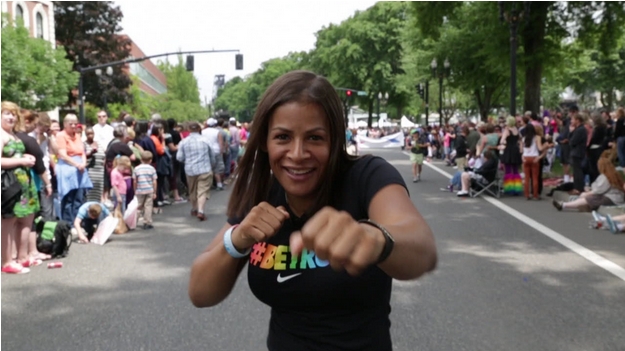 When it comes out that someone is a transgender athlete, of course some people flip because it goes against what most of them have been taught: that one’s gender comes from what is in one’s pants in that precise “magical” moment we leave our mother’s womb. To them, that “moment” affects your brain and your body forever. If gender reassignment surgery could be performed in utero by a priest who said, "I know what's going on," I theorize they wouldn't have much problem accepting our participation in sports. But, as it stands, after one leaves that birth canal it's all set in stone in the minds of some, both physically and, in many cases, mentally. [That’s] a thought process that does not give me warm and fuzzies about prospects for the future of humanity.
When it comes out that someone is a transgender athlete, of course some people flip because it goes against what most of them have been taught: that one’s gender comes from what is in one’s pants in that precise “magical” moment we leave our mother’s womb. To them, that “moment” affects your brain and your body forever. If gender reassignment surgery could be performed in utero by a priest who said, "I know what's going on," I theorize they wouldn't have much problem accepting our participation in sports. But, as it stands, after one leaves that birth canal it's all set in stone in the minds of some, both physically and, in many cases, mentally. [That’s] a thought process that does not give me warm and fuzzies about prospects for the future of humanity.
